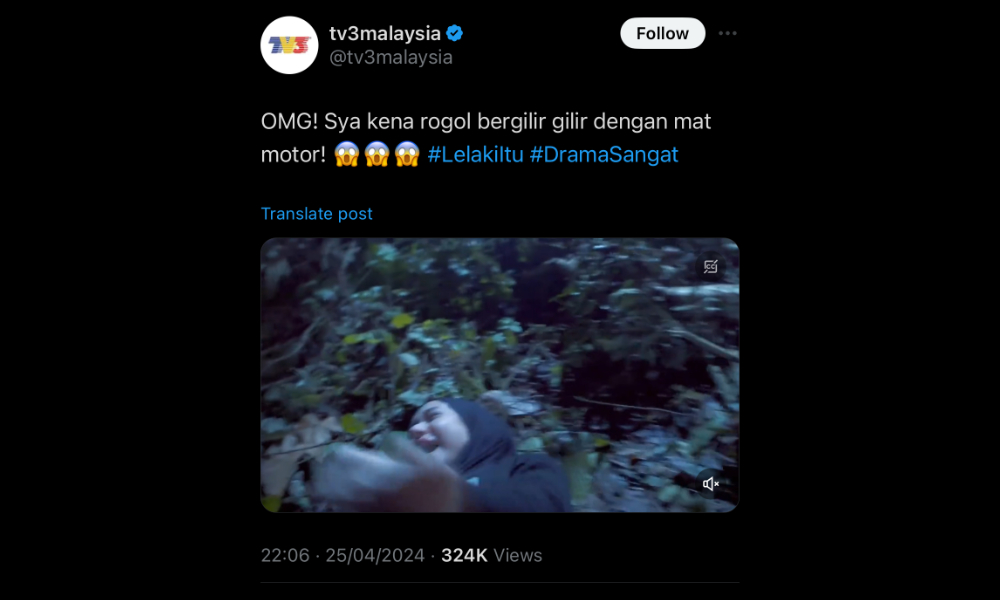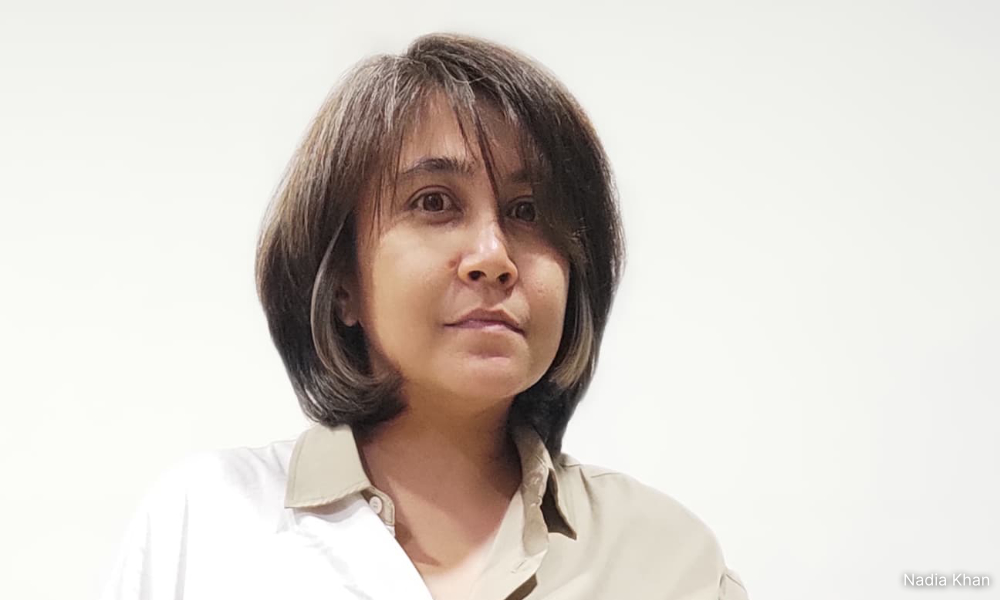While some viewers may find certain scenes in local films and dramas uncomfortable, those in the industry believe they are essential in storytelling.
However, they stressed such depictions must be handled with proper consideration.
Recently, a local TV station shared a now-deleted tweet featuring a short clip of an alleged rape scene from its new drama.
Director and actor Megat Shahrizal believed that while Eastern and Western contents may differ, explicit scenes can enhance a story.
For instance, he cited the rape scene in HBO's “Game of Thrones”, which helped shape the characters from the pilot up until season three.

"The scene, in particular, helped to (develop) the character," he said.
Megat also mentioned the latest local action movie, “Sheriff”, which featured corruption in the police force.
He said such content might have exposed “dark things” but believed it would help cure the “disease” in the society.
"For me, exposing your dark secret doesn't make sense (in films and dramas) because how are we supposed to treat the ‘disease’ without exposing it?" he told Malaysiakini.
Other industry professionals, like director Nadia Khan and actor Ellie Suriaty Omar, agree the triggering scenes could help move the story forward.
However, Nadia emphasised that filmmakers' intention should be to show reality, not just for clout or talking points.

She added that everything, including the aftermath of the scene being portrayed, must be handled professionally if it is necessary.
“The most important thing is that the scene's making must be conducted professionally, including its aftermath, such as the interviews, and not to be made for controversial purposes only," she said.
‘Triggering scenes reveal truth’
Ellie, also a director, said while Asian cultural norms dictate modesty, hiding explicit scenes may only pique curiosity and encourage similar behaviour.
She added that such scenes also depict harsh realities on the ground, which may expose the public to uncomfortable truths.
"You have to show it. When you are too protective, people tend to do it out of curiosity," she stated.
Drawing from her own experience, Ellie asserted that these scenes, although challenging to film, are essential for conveying the truth.
In movies like “Embun” and “Pagari Bulan”, where rape scenes depict the plight of comfort women during the Japanese occupation, Ellie argued that these depictions are necessary to shed light on historical realities.
“(These movies) shared the truth about how the locals become comfort women," she said.
Safe space for crew
When actors work on explicit scenes, Nadia stressed the importance of creating a safe space between actors, directors and the production crew.
She added that such measures would help actors from harm and weed out any weirdness, as everyone would know the plot lines.

Having said that, Ellie noted that filmmakers must establish boundaries regarding matters involving religion, citing the film “Mentega Terbang” as an example - where the film's storyline and script touched on religious beliefs (aqidah).
"(In the film), there was a scene where the daughter asked her dying mother if she would return as a butterfly after she passed. That is against our (Islamic) creed," she added.
In January, the director and producer of “Mentega Terbang” were charged with intentionally hurting the religious feelings of others at the Kuala Lumpur Magistrate's Court.
The movie tells the story of 15-year-old Aishah, who grappled with her mother's passing and was drawn into the concept of rebirth as contained in other religions.
Her father, portrayed as a liberal figure, supported her exploration by allowing her to study the sacred texts of different religions in pursuit of understanding.
The movie was banned in December last year. Its maker has been granted court leave in January to proceed with their challenge against the government ban on the religiously controversial movie.
‘Censorship blocks creative flow’
Touching on censorship, Nadia, advocated for case-by-case evaluations rather than blanket censorship, suggesting that this approach would encourage creativity and artistic expression.
She added that rigid guidelines often hinder storytelling, urging authorities to consider the context of scenes within the larger narrative.
"Matters regarding guidelines can be tricky because any form of work needs to be viewed as a whole and to see the story context."
Echoing similar sentiments, Ellie expressed hope for more flexibility in the Film Censorship Board’s (LPF) guidelines to foster creativity within the industry.
She cited the movie “Sheriff” as an example of filmmakers creatively addressing societal issues, such as corruption among civil servants.

"Before this, we couldn't show that police took bribes because they were portrayed as clean, which we know is not the case.
"That does not mean we are condemning government servants. But when (corruption) happens among civil servants, we must create content or a story from the filmmakers' narrative," she said.
Megat, on the other hand, emphasised that directors and TV stations should take accountability for their content instead of relying on LPF. - Mkini




No comments:
Post a Comment
Note: Only a member of this blog may post a comment.